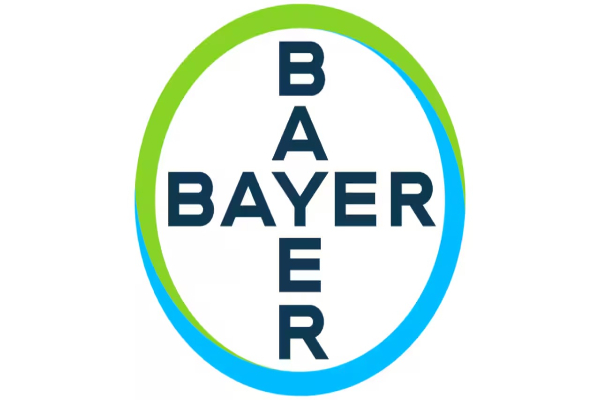EBITDA before special items decreases to €4.08 billion (7.4%)

The Bayer Group has announced that Q1 2025 sales came in at €13.73 billion. After adjusting for currency and portfolio effects (Fx & portfolio adj.), sales were level with the prior-year quarter (- 0.1%). There was a negative currency effect of €55 million (Q1 2024: €525 million). EBITDA before special items decreased by 7.4 percent to €4.08 billion.
Earnings were held back by the business performance in the Crop Science Division, higher expenses for the Group-wide long-term incentive (LTI) program and a negative currency effect of €165 million (Q1 2024: €206 million) arising primarily from hyperinflationary impacts.
EBIT declined by 24.8 percent to €2.32 billion after net special charges of €587 million (Q1 2024: €
207 million). The special charges primarily related to allocations to provisions for the Roundup litigations as well as to expenses for ongoing restructuring measures. Net income decreased by 35.1 percent to €1.29 billion euros, while core earnings per share fell by 11.7 percent to €2.49, mainly due to the decline in EBITDA before special items in the Crop Science Division.
Net financial debt as of March 31, 2025, amounted to €34.25 billion euros, marking a 5.0 percent increase from year-end 2024 that was mainly due to seasonal cash outflows from operating activities in the first quarter. However, compared to March 31, 2024, net financial debt was down 8.6 percent.
“Our first quarter puts us in a good spot to deliver in a challenging and important year for the company,” CEO Bill Anderson said on Tuesday when presenting the company’s Quarterly Statement.
He highlighted the substantial growth in earnings in the Pharmaceuticals Division. “That is an encouraging sign that our operating model is helping teams do more with less,” Anderson said. The company expects the division’s sales growth and profit margin to come in at the upper end of the range given in the full-year guidance.
“We’re confident in the momentum of our launches and the fundamentals of our business,” he said, commenting on Pharmaceuticals’ prospects. At the same time, Bayer is closely monitoring the current geopolitical and economic uncertainties, and analyzing potential impacts on the company. CFO Wolfgang Nickl said: “Based on the current status of tariffs announcements and our mitigation measures, we expect to manage the impact, and we confirm our outlook at constant currencies for the full year 2025.”
Pharmaceuticals: Sales gains drive earnings growth
Sales of prescription medicines (Pharmaceuticals) increased by 4.1 percent to €4.54 billion. The division’s new products achieved significant gains, with growth rates of 77.5 percent for the cancer drug Nubeqa and 86.6 percent for Kerendia, for the treatment of chronic kidney disease associated with type 2 diabetes.
Pharmaceuticals also posted continued sales growth for the ophthalmology drug Eylea, with an increase of 4.7 percent, as well as in the Radiology business, largely driven by higher volumes for CT Fluid Delivery and Ultravist. The Mirena and YAZ families of contraceptive products likewise saw strong growth, registering gains of 18.4 percent and 14.1 percent, respectively. These positive effects were partially offset by declines for Xarelto in particular. Sales of the oral anticoagulant fell 31.2 percent due to competitive pressure from generics, especially in Europe and Japan.
EBITDA before special items at Pharmaceuticals increased by 12.4 percent to €1.34 billion, mainly thanks to the increase in sales. Earnings also benefited from cost savings generated by efficiency programs and one-time effects. The EBITDA margin before special items rose by 2.1 percentage points to 29.5 percent.
Consumer Health: Sales up thanks to volume growth in North America and Asia/Pacific
Sales of self-care products (Consumer Health) increased by 2.5 percent to €1.49 billion, with business up in three out of four regions. Growth was largely fueled by higher volumes in North America and Asia/Pacific. Additional drivers included a 12.7 percent increase in sales at Digestive Health, with contributions from all regions, as well as higher sales of cough and cold products in the United States following a slow start to the season in the previous quarter. By contrast, sales were down in the allergy business and the Nutritionals category, with the latter recording a decline of 5.2 percent.
EBITDA before special items at Consumer Health rose by 3.3 percent to €342 million, largely due to the increase in sales. In addition, the division’s continuous cost management efforts had a positive impact, including a reduction in the cost of goods sold. By contrast, earnings were held back by higher investments in marketing innovative products. In addition, the prior-year quarter benefited from income from the sale of minor, non-strategic brands. The EBITDA margin before special items declined by 0.3 percentage points to 22.8 percent.
Currency-adjusted Group guidance for 2025 confirmed
Bayer has confirmed its currency-adjusted Group outlook for 2025. The company now expects sales growth and the EBITDA margin before special items at the Pharmaceuticals Division to come in at the upper end of the range given in the Annual Report 2024. In view of developments with respect to the legal risks, Bayer expects the special items in both EBIT and EBITDA to come in at the upper end of the range given in the guidance (approximately - €1.5 billion). The company is continuously evaluating the impacts of the current geopolitical developments, especially in relation to potential tariffs. Based on current calculations of the financial effects, Bayer does not see a need to revise the full-year guidance. However, there is considerable uncertainty concerning the future impacts of any potential further developments in relation to this issue, as well as with respect to exchange-rate developments.

Subscribe To Our Newsletter & Stay Updated